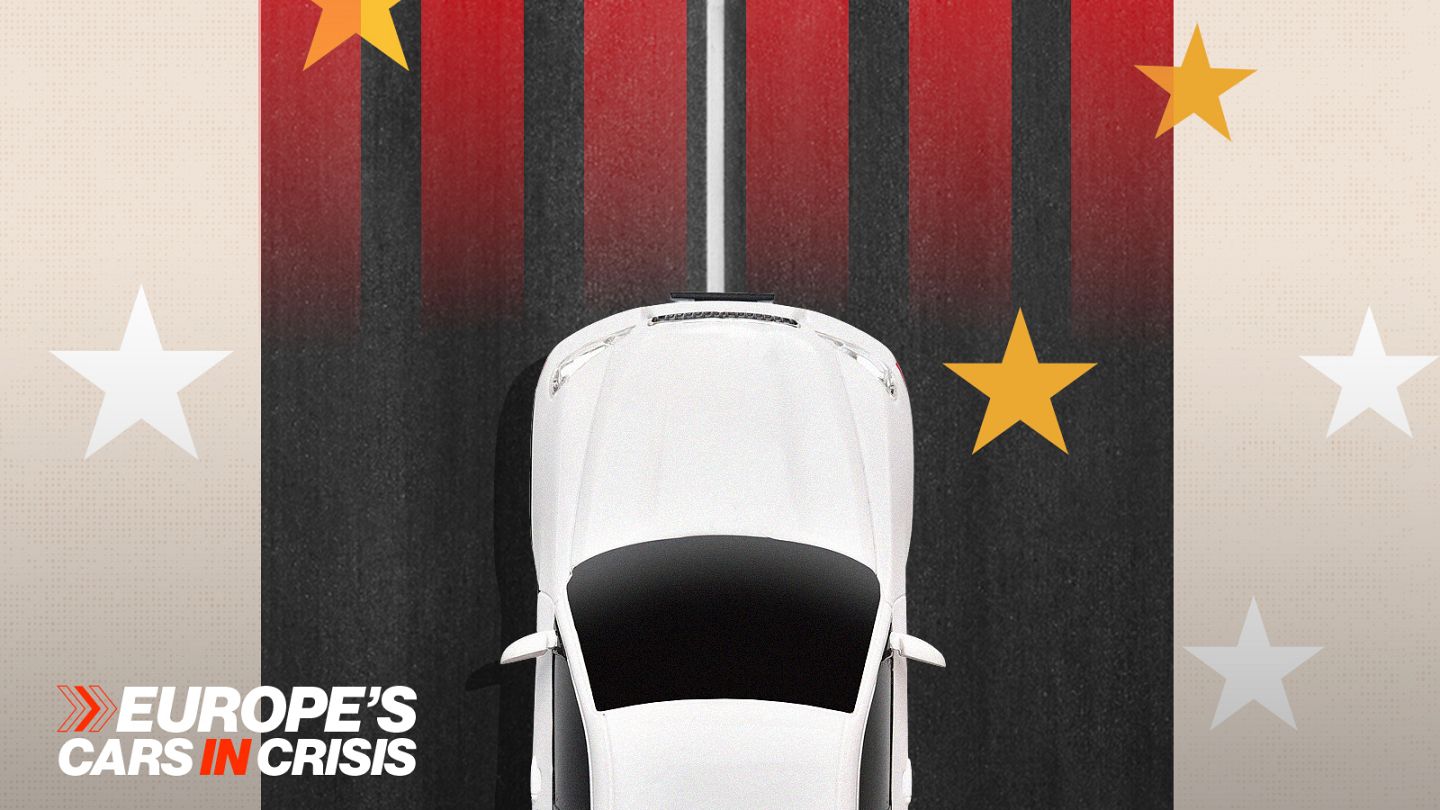
Europe’s car industry is under strain, squeezed by Trump tariffs, fierce competition from China and the costly demands of meeting domestic rules for electric vehicle adoption.
The sector, which accounts for more than 7% of EU GDP and employs more than 13 million people, faces mounting pressure to stay competitive while absorbing the financial weight of the transition to cleaner mobility.
The EU’s next steps in response to these challenges will be crucial in shaping the future of the automotive sector, a key industry for the region.
EU car sales by the numbers
According to newly released data from the European Automobile Manufacturers’ Association (ACEA), EU new car registrations in the first seven months of 2025 fell 0.7% compared with the same period last year.
EU car sales rose 7.4% in July 2025, with Volkswagen and Renault posting strong gains, while Stellantis slipped. Tesla, meanwhile, saw sales plunge by 40.2%.
In the first seven months of 2025, more than one million battery-electric vehicles were registered across the EU.
Plug-in hybrids posted their strongest growth since January 2023, while battery-electric cars recorded the biggest increase since August last year, according to ACEA data.
Three of the EU’s four largest markets, which together account for more than 60% of battery-electric registrations, posted gains in the first seven months of 2025, led by Germany (+38.4%), Belgium (+17.6%) and the Netherlands (+6.5%).
Registrations of battery-electric, hybrid, and plug-in hybrid cars rose by 39.1%, 56.9% and 14.3%, respectively, together making up 59.8% of the bloc’s total registrations, compared with 51.1% in July 2024.
Tesla’s car sales in Europe fell 40.2% year-on-year, cutting its market share to 0.7% from 1.3%.
Meanwhile, China’s BYD more than tripled its sales, reaching 1.2% of the market and overtaking Tesla for the first time in the region.
German brands are among the automakers most exposed to protectionist trade policies, feeling the squeeze as higher tariffs already drive up costs across the supply chain.
Volkswagen in particular faces the task of cutting factory overcapacity and restructuring costs to keep pace with Chinese challengers like BYD.
“We welcome competition because it drives innovation,” a Volkswagen spokesperson told Euronews.
“It is also apparent that Chinese competitors in Europe must also adapt to the specific requirements of the market and cannot adopt technologies from China on a 1:1 basis,” the spokesperson said.
New tariff policies have thrown European carmakers into uncertainty, leaving them unable to predict future costs, supply chain stability, or market reactions.
The Volkswagen Group confidently accepts the growing international competition, including from China, and sees this as an opportunity.
The Volkswagen Group welcomed the recent joint declaration by the EU Commission and the US government.
German carmakers suffered billions in losses after President Trump imposed 27.5% tariffs on European automakers in April. Although those duties have since been lowered to 15%, the reduced rate has not yet taken effect.
The group wants the US administration to disperse the clouds surrounding the industry:
“In order to guarantee the prospective tariffs of 15% for car imports from the EU to the USA with retroactive effect from August 1, the US administration should now initiate the necessary administrative processes after the EU Commission has fulfilled the necessary requirements for retroactive application. This is the only way to avoid higher burdens for companies,” the spokesperson said.